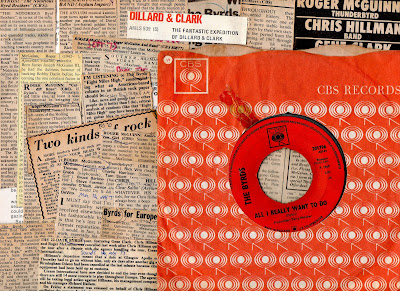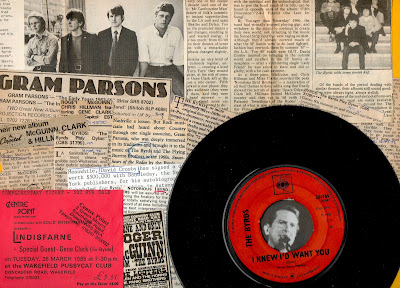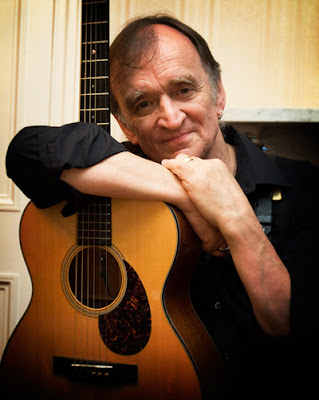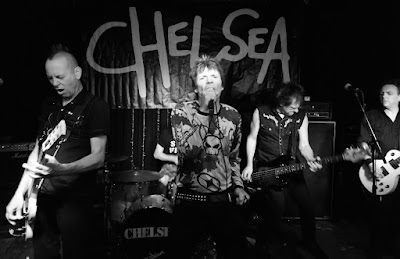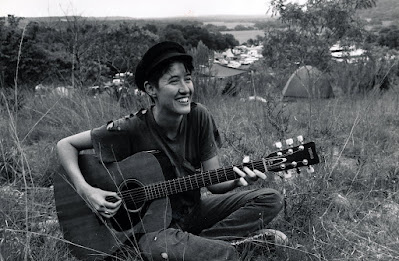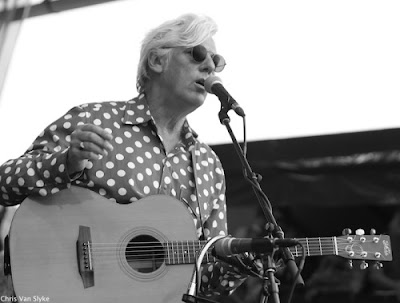The Rolling Stones, with The J Geils Band and
The Joe Jackson Band play Leeds Roundhay Park.
I was there to take its pulse,
and check for life-signs
When the Sex Pistols finally bust wide open John Lydon (Rotten) pronounced the end of the ‘Rolling Stones of the Eighties’. He was wrong. The Rolling Stones are the Rolling Stones of the Eighties. The Stones are a phenomenon. Like an eclipse, an earthquake, or a tidal wave. Something that occurs naturally, has the potential to transfigure all within range, but the effects of which remain imprecise and defy encapsulation in words. Music comes into it only slightly. Their mythology, longevity, and importance is – in this sense, a phenomenon, but by no means necessarily a musical one.
If their role in 1982 is talismanic, here in Leeds is where that history and myth must collide with now.
SF writer Harry Harrison once guesstimated that if everyone alive on this planet were to stand heel-to-toe they’d cover an area equal to the island of Zanzibar. That might look rather like Roundhay Park looks now. I spend the entire George Thoroughgood set sat in a miles-long auto-tailback breathing lead-impregnated air caught up in this human avalanche converging on this place, and taking it all in – yes, it’s an impressive gathering – but oddly so. Like that version of some ‘Stand On Zanzibar’-future this is a mass of largely clean, polite, deodorised, civilised, so respectable people. The fashion-dummy weirdo count is low. A token sprinkling of Mohican ‘n’ leathers, a small percentage joints, long ratty hair ‘n’ granny-glasses, but the majority are passively non-denominational. Some nubiles and not-so-nubiles in very little clothes prompt sexist reactions very inappropriate to such a Family outing atmosphere.
I get inside the Press Cage patrolled by Security gorilla’s, rumour thereabouts is Jagger ain’t arrived, others say he’s backstage playing table-tennis with Jimmy Savile. Five ruthlessly efficient rent-a-thug pass-checks discourage me from finding out either way. The surrounding geography is natural amphitheatre with the Hill-Sixty embankment sloping down in perfect audience tiered elevation to enhance visibility. Children on a strict parental leash play in and around tree-shadows and bushy undergrowth. They’re largely unimpressed by the occasion. Or by the Police and Security men evicting (by a combination of cajoling and threat) a thin line of freebie squatters mounting the sloping grey-tiled roof of a nearby Summer House. It provides them with a far more interesting spectacle than the geriatrics posturing on the extravagant stage. I’m no schoolboy but I know what I like…
The sun pours down like buttermilk for Joe Jackson to largely win over the audience with his so-far unblooded, untried, new keyboard-based band. He goes back as far as his early “Sunday Papers” hit, then uses “It’s Different For Girls” as a tasty duet vehicle with Julie, a glockenspiel chiming behind them. ‘I didn’t think we’d pull this many people’ he quips guilelessly, shading his eyes to take it all in. Then they do some songs from the current ‘Night And Day’ (1982) album, including “Target” and “TV Age” with Joe on sax. He emphasises the lyrics ‘in the Stone-age, we all got Rocks in our head…’
Then there’s a long pause filled with bland American AOR. It’s already getting claustrophobic in the privileged confines of the royal Press Enclosure, so it’s walkabout time, comparisons storming. Thinking Bob Dylan’s Blackbushe Aerodrome Hippies Graveyard (July 1978) – surely an analogous cultural manifestation? that was all brown rice ‘n’ herb, all street theatre groups, psychedelic buses ‘n’ tepee’s, each stall unfurling its phantasmagoric ware of rare precious and beautiful bootlegs, CND and alternative-art texts, hand-carved jewellery and exotic drugs. Here, it’s all red-blood materialism – we got kebabs, curries, real meat hamburgers, pancakes, German sausages, Mexican chilli, pizzas, fruit, filled potatoes and soft drinks. And we got strictly licensed merchandising. Stones posters and flags, Stones programmes and sweat-shirts, Stones badges and patches. Altamont it ain’t. Today no-one gets stabbed, worst thing that happens is you get overcharged for a rather cruddy T-shirt. And over it all that endlessly boring digitally recorded L.A. soft-rock blands on – is this REALLY the company they choose to keep? Less Street-Fighting Men with Devilish Sympathies, more West Coast Under-Assistant Promo-Man…
The J Geils Band strive to confirm your direst suspicions, by contriving an hour-long wet fart of faddy ephemera, flim-flam and self-indulgence, a brashly athletic homogenised flavourless flatulence, an airborne detergent composed of the expected hits blended with easily digestible lumps of vintage sixties Soul pulped into good-timey inoffensive mush. They do the Showstopper’s “Nothin’ But A Houseparty”, Wilson Pickett’s “Lookin’ For A Love”, and the Supremes’ “Where Did Our Love Go?” which succeed only in freeze-framing their paucity of originality. Peter Wolf raps in largely incomprehensible jive rhyme, which he drops long enough to gush ‘We’d like to thank the Rolling Stones for inviting us so far,’ then they conjure a circus acrobat’s pyramid with Wolf, Magic Dick (mouth harp), and guitarist Geils himself as the lower tier. Seth Justman (keyboards) and Danny Klein (bass) above. Topped by drummer Stephen Bladd squatting at its apex raising his fists in bragging self-congratulation. Then they’re gone, leaving no taste at all.
I watch up-and-down the l-o-n-g stage as Roadies vacuum its panoramic length and the video screen is assembled above them on spiderworks of scaffolding. To their left there’s the phallic sausage-car and the sexy Eiffel Tower flying-‘V’ guitar, as on the live album sleeve. On the right there’s a big blue zig-zaggy sax and a constellation of Miro-esque liquorice discs. The two drapes connected by a shabby rainbow bridge of balloons. The sun goes in and a breeze gets up. The PA syncs at last – and barrages a spectrum of Yardbirds, Hendrix, “Anarchy In The UK”, Chuck Berry, Free, “London Calling”, Eddie Cochran – this might be the Stones museum phase, but THIS is the company they SHOULD be keeping.

‘Each person an island within his own nostalgia’ wrote ‘Oz’ editor Richard Neville after the Stones’ Hyde Park free bash. Me, I’ve seen the Stones now in each of their evolutionary phases. I saw ‘em play to two-hundred at Bridlington Spa Theatre circa 1964 with Brian Jones, intense anarchic art-school R&B, elitist, purist, the anger of frustrated energy screwed down tight, raw and violent with a loutish sexuality and an amphetamine burn of painful amplification. I saw ‘em a decade back at Leeds University when Mick Taylor had already etched his vibrant block-chords onto their ‘Kings of the Underground’ albums, ‘Sticky Fingers’ (1971) and ‘Exile On Main Street’ (1972). Then they seem cynical, demonic, menacingly depraved, narcissistically narcotic, dangerously decadent. But even then they were facing the underswell of a newer less sardonically mocking glam generation. Preparing to accept their less ambitious ‘Only Rock and Roll But I Like It’ role for the seventies.
6pm sharp and the rainbow-bridge fragments, balloons cascade upwards everywhichway, and the Rolling Stones are on stage. “Under My Thumb”, “When The Whip Comes Down”, and “Let’s Spend The Night Together” before the sound gells and gets into step. “Shattered”, “Neighbours” and ‘an old Blues song’ “Black Limousine” before the pacing crystallises. Then “Just My Imagination” comes as near-perfect as the Stones will ever be live, and you simultaneously let it sluice all over you, and start to separate out its parts. Jagger is stage-centre, and that’s as should be. He’s the focus for the entire projection, red headband, technicolor pants, yellow knee-sox, leopard-skin jacket. He’s no longer remotely threatening, no menace or fin de siécle subversion, unless you count ‘I don’t wanna be anybody’s doormat, I don’t wanna be shit on, shoved about. I don’t want to be no-one’s Beast Of Burden ny-ther.’ And later on just the hint of sarcasm when he leers ‘I know there’s a bit of wind, blowing the sound down towards the centre a-town,’ delivered to cosy laughter. But more he’s the grotesque comic jester, his actions so mannered they’re absurd, like he’s deliberately sabotaging himself through a more exaggeratedly garish caricature than his most boorish TV parodist would ever dare, and he’s ridiculing the punters for buying it, and for gullibly taking in the whole outlandishly ludicrous premise on which it operates. Yet he’s also magnetic, mesmerising, trapping all eyes. It’s showbiz, it’s performance, but they don’t come more charismatic.
His vocals on Cochran’s fifties opus “Twenty-Flight Rock” are ragged. And once “Going To A Go-Go” and “Baby Please Let Me Go” have passed effortlessly he’s into ‘the chic part of the show’ – his first costume change. A blue jacket and red beanie hat to attempt the Stones’ first ever US Top Ten hit “Time Is On My Side”. By every objective criterion it’s a disaster, its slow churchy pacing hunting out every inadequacy in his range, bending the melody to accommodate those notes he can no longer reach. But it don’t really matter any more. He might not be the apoca-lips he once was, but it’s still clearly The Singer Not The Song. His clownish stagecraft is slyly exacting and no-one gets short-changed.
Bill Wyman is stood immobile behind him in blue unzipped tracksuit. It’s easy for him to get eclipsed. And Charlie Watts stays near-invisible behind the gantry of amplification stacks. But it comes apparent that their combined primitive rhythmic strength is by no means slight. The Stones sound is unique, and a large part of it rests on the steady reliable organic interaction twixt bass and drums. If anything of the early Route 66 Chicago Blues (or even Croydon Blues) raunch remains it’s to be found here in their constantly thunderous gangling millstone grit. And it lays down the tight base for the essential looseness all around, making it possible, giving it shape and anchoring it to form. It allows the long improvisations to be spun out around Jagger’s callisthenics on “Beast Of Burden”, where he mounts a hydraulic lift and gets shunted out over the audience heads, then dances back along the catwalk scything a ritual bucketful of water in campy tease over the sea of collectively perspiring faces.
Then he goes into dilettantishly slow balletics as Ronnie Wood plays in “You Can’t Always Get What You Want” on a gleaming steel guitar. Ronnie don’t move around much, adds harmonies here and there as required, largely stands to stage left with Surf-white sleeveless jacket over blood-red shirt, as Jagger co-ordinates various sections of the mob in community singing. ‘Get yer lungs and yer hearts out and we’ll do this one together.’
Keith’s trademark lurches and shambles, are by contrast, hyperactive, healthy – even paunchy, and competing for frontman status by playing out rough-hewn guitar-lead along the full length of the elevated platform, then with radio mic to take it even further. He grates the vocals for “Little T And A” hunched in around his axe in denim-dark jacket with Stones logo-flash down his spine, and comes through every inch the ravaged hero even without Jagger’s sense of immaculate presence. No more the World’s Most Elegantly Wasted HumanTM, but something of that aura hangs on tenaciously, like burrs. He started out with three or four appropriated Chuck Berry runs, and two decades on he’s still determinedly advanced no further, still as crude, still fumbling the run-in to “Honky Tonk Women”. There’s ten local band guitarists in Leeds and twice that number in Sheffield technically 10,000 light years ahead of him, not that it matters. This is Keef. Bum notes figure large in his legend, operating on the Gerald Ford falling-over-gets-you-acceptance principle.
Jagger emotes ‘Angie – when will those clouds all disappear?’, and as the perfect punchline the sun breaks through like a red belisha spotlight on the vamping gesticulating sometime Lucifer, veins stood out like cables on his neck. He headstands and rolls down the ramp as gross theatrical interpretation to a churning “Tumbling Dice”. Then there’s “She’s So Cold”, “Hang Fire”, and Wyman’s finest bass-pumping on an excellent “Miss You”, Jagger joining on guitar. Behind him there’s Ian Stewart’s piano, and a tight American brass section, Jack Lavell from Macon on additional keyboards, Gene Bruge from Chicago on sax, and the brilliant Bobby Keys from Texas taking the gut-twisting solo on “Brown Sugar”.
It’s close on two hours before they run up to climax with “Start It Up” and “Jumping Jack Flash”. Midway Jagger, now topless, Dachau-thin and androgynously hairless, produces a huge Union Jack to wear like a cape, hurtling up and down the canvas like some fake grounded Superman, casting it aside derisively as if there really is an anti-establishment content left to the whole spectacle – instead of the smugly patronising façade you keep suspecting. There’s an encore, the only number they could possibly do, a shabbily breathless “Satisfaction” with Jagger reappearing from a hole in the tapestry onto the hydraulic grab back down to the ground. Then the whole thing detonates with “Land Of Hope And Glory” roaring from the speakers, drowned out by a blindingly iridescent firework blitz. You kind-of hope it’s meant to be derisive, but keep getting sneaky suspicions there’s more – or less, to it than that. Flags and anthems are for spitting on, perhaps Their Satanic Majesties forget?
‘Relevance’ has a lot to do with the buzz in the air, a lot to do with the subjective perception of critics, a lot to do with saying the right thing at the right time to the right person. It is stance and often pose. It is the indefinable pulse of something elusive. It can’t be quantified with any degree of objectivity. But judged impartially ‘relevance’ must also have something to do with what is ‘relevant’ to people’s lives. Tonight’s community disintegrates across acres of garbage and pulverised flowerbeds, and in the Aftermath kids with black bin-liners collect returnable bottles in a spirit of Free Enterprise Jagger might smile on. But, twenty-five numbers they’ve done (count ‘em!), and I could list twenty-five more equally essential texts they missed. And it was, above and beyond all else, an EVENT. A victory, if a rather ragged, vaguely dog-eared one. Dinosaurian they might be, Out Of Time, talisman of dead decades, but Roundhay Park proves… confirms, that they are also relevant to the lives of more people now, and have been with greater intensity over a longer period and in more global areas than just about anyone else you could lay a tongue to.
That means a lot…
Published in:
‘HOT PRESS’
(1982 – Ireland)
ROLLING STONES:
FROM THE VAULT
‘ROUNDHAY PARK’
(DVD, Eagle Vision)
I was there, in the press enclosure at Leeds Roundhay Park, 25 July 1982. I taped this concert on cassette. Driving home afterwards my in-car tape machine chews it up and spits it to shreds. Now – at last, I’ve got the perfect digital-quality replacement. I wandered around the backstage cage but the rent-a-thugs kept it tight, the talk was that Jagger was playing table-tennis with Jimmy Savile who lived just across from Roundhay. They don’t brag about that now. There’s a rainbow-balloon arch over the stage, a red flying-v guitar stacked Eiffel Tower-wise, and a huge blue cartoon sax. From “Under My Thumb” – Jagger’s jester costume with yellow-stripe codpiece and ‘MICK’ on the back, as if we need telling. A bemused Wyman – yes, he’s still there, with minimalist black bass and white headband. Ian Stewart with plastic beer carton close to hand on his piano. Keef, chain-smoking and dangerously Punk. Ronnie’s whiplash grin like he still can’t believe his luck, closing with Keith for harmonies, playing off each other. It’s tuneless, rough, ragged, absurdly posturing, lyrics reduced to nonsense slogans, but uniquely shifted outside of every mainstream critique into a singularity of their own. Beyond comparison, because there’s literally no-one else. A force of nature, recharged by five tracks from ‘Tattoo You’ (August 1981), including Bobby Keys’ muscular sax on “Neighbours” and a brutal climaxing “Start Me Up”. It’s only Rock ‘n’ Roll after all, but I like it.
And I look, but no, I can’t see myself.
Published in:
‘R2: ROCK ‘N’ REEL Vol.2 Issue 56’
(UK – March 2016)
ROLLING STONES –
‘LIVE IN ‘75’
DVD
Review of:
‘FROM THE VAULT:
L.A. FORUM (LIVE IN 1975)’
by THE ROLLING STONES
Own up, the Stones have always been inconsistent. After a series of careers-best albums from ‘Beggars Banquet’ to ‘Exile On Main Street’, the 1970s saw an abrupt quality decline with ‘Goats Head Soup’ the first of a run of bummers – at least until ‘Some Girls’ (1978) resurrected their relevance. The onset of Glam wrong-footed them into a loss of confidence, Jagger in sequins and sailor suit was missing the point. And Mick Taylor was gone. The press lay odds about Jeff Beck, or even Eric Clapton replacing him, but they go for the safe pair of hands with Ronnie Wood. It’s he who coined the ‘It’s Only Rock ‘n’ Roll, But I Like It’ attitude which seems just a little close to surrender. This 1975 American tour was Ronnie’s try-out as a Stone. And as Richard Havers liner-notes point out, the Glimmer Twins had just tipped the dangerous thirty age barrier. A lot was a stake. The 44-date tour took in five nights at the L.A. Forum. This DVD – with two CD’s, in its lavish fold-out pack, documents the 12 July set.
Opening with the grandiose pomp of ‘Fanfare For The Common Man’, Jagger is pretty in pink, primped and preening. The cameras follow his preposterous bum-wriggling even when Keith is singing “Happy”. Keith – before Jack Sparrow took him, is night-black and crouched like a Z. Ronnie in all-over red, with wink-hat. Bill like a rhinestone cowboy. Billy Preston in huge Afro, slipping in sly keyboard quotes. Jagger’s voice is tunelessly shot, redeemed on new stuff such as the ‘young lady who went astray’ at the core of the euphemistically retitled “Star Star”. The Stones always were inconsistent, but they’ve still got the greatest back-catalogue in Rock to draw on.
Published in:
‘R2: ROCK ‘N’ REEL Vol.2 Issue 50’
(UK – March)





